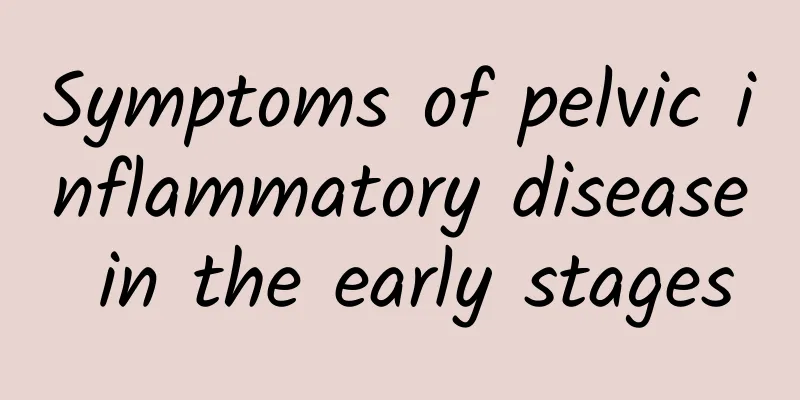What are the dangers of painless abortion?

|
Painless abortion is a method of abortion that is popular among women. It reduces the pain women suffer during the abortion process. Generally speaking, anesthesia is performed before painless abortion to ensure that women complete the operation without consciousness. Since there is no pain, many people think that this is a harmless abortion procedure. In fact, this is wrong. So what are the dangers of painless abortion? The dangers of painless abortion |
<<: What should I pay attention to after having an abortion?
>>: How many days of pregnancy can I have an abortion?
Recommend
What are the four major hazards of uterine fibroids? What are the symptoms of uterine fibroids?
Uterine fibroids are a common benign tumor in the...
Can I have a gynecological examination if I bleed after sex?
Yes, you can have a gynecological examination if ...
Is surgery for cervical erosion harmful to the body?
Surgery for cervical erosion generally does not c...
"Jin" scenery! McDonald's to sell bubble tea
Germany has successfully conquered the world with...
The early symptoms of cervical erosion are mainly caused by cervical secretions.
Women in the new era are most concerned about the...
What is the difference between intrauterine effusion and pelvic effusion and how to diagnose it
Both intrauterine effusion and pelvic effusion be...
What are the symptoms of pelvic peritonitis
For women, gynecological inflammation is very tro...
What to do if you have the urge to urinate during your period
What should I do if I always feel like urinating ...
How long does it take to cure threatened abortion?
In recent years, the phenomenon of threatened abo...
What are the symptoms and consequences of cervicitis in women? Be alert to the five major symptoms of cervicitis in women
Gynecological diseases in women are as frequent a...
Why is cervical erosion difficult to cure for a long time? There are four reasons why cervical erosion in women cannot be cured.
It is difficult to completely cure gynecological ...
Can pressing the hunger-stopping points help you lose weight? Chinese medicine doctor: Press these two ear points to lose weight easily
The main cause of obesity is mostly related to &q...
Get rid of fat legs! 10Q&A: Debunking Myths
The pear-shaped body is a common body shape among...
How to prevent irregular menstruation?
Daily life conditioning is very important for pre...
How should women use medication for cervical erosion? A guide to drug therapy for cervical erosion in women
Several methods of treating cervical erosion 1. D...









